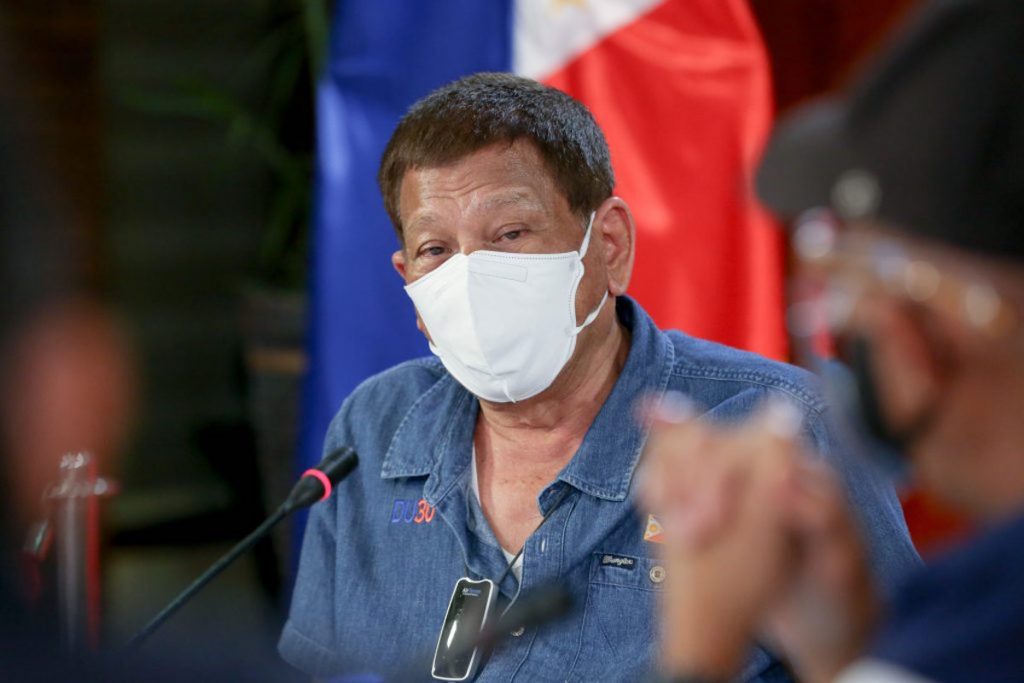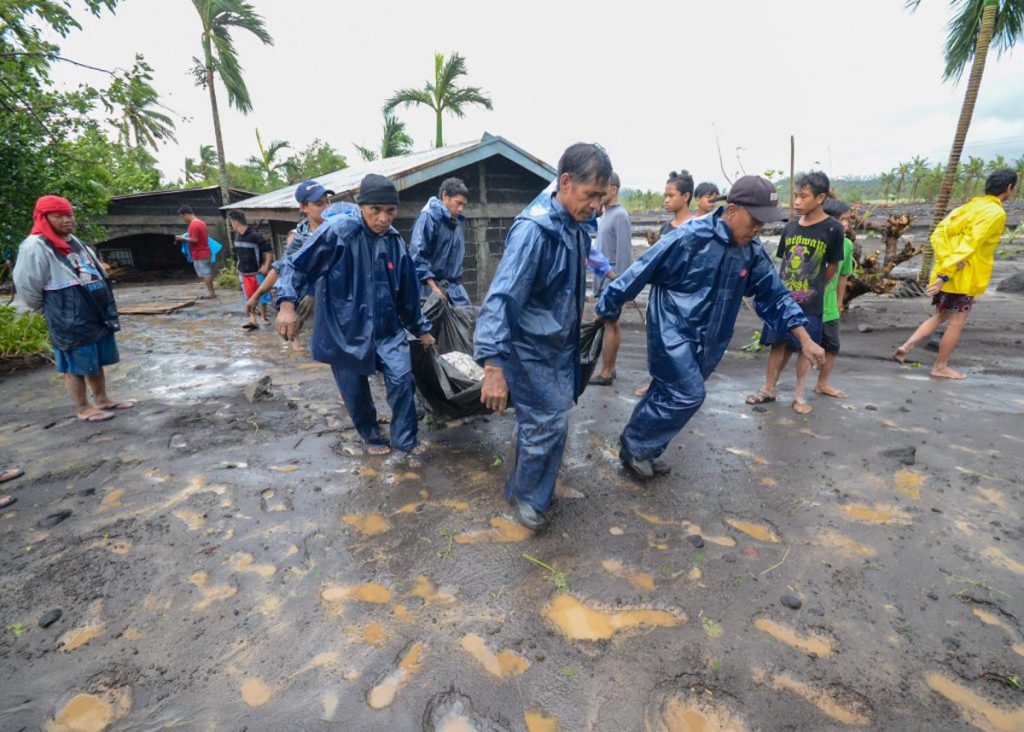As millions of Filipinos scrambled for shelter on Oct. 31, a day before the world’s strongest typhoon’s scheduled landfall, Philippine President Rodrigo Duterte was nowhere to be found.
Constituents also missed him during the Nov. 1 Cabinet briefing that started hours after Super Typhoon Goni raged through the Bicol peninsula on the southernmost tip of the main island of Luzon.
The country’s rowdy social media channels blared with #NasaanAngPangulo (Where is the president?) as Goni sailed across the Sierra Madre mountains and exited that night just south of the capital.
Duterte surfaced on Nov. 2 as disaster management officials and media reported at least 20 deaths, tens of thousands of homes destroyed or damaged, and croplands ruined.
Up to 90 percent of infrastructure was down in Catanduanes province. Lahar from the slopes of Mayon Volcano in Albay province buried hundreds of homes and plots of food crops. Floods swept through towns still reeling from a typhoon that had passed a week earlier.
Duterte dismissed criticism over his absence.
“What’s your problem?” he sneered while presiding over a post-typhoon assessment. “Papers are sent to me, I sign and send them back. A machine is all it takes,” he said in the Filipino language.
Duterte said he wanted to commemorate All Soul’s Day, called “Undas” in the national language. This Catholic feast ranks with Christmas and Lent in Asia’s largest Catholic majority. Millions cross the country by plane, land and sea, clogging cemeteries in a tradition that mixes faith in the afterlife with a raucous celebration of the present.
“I was just waiting for the typhoon to pass to fly back,” said the former mayor of Davao City on the southern island of Mindanao.

Perks of power
“You know, if you don’t have dead kin, that’s okay. Those of us who do, we really need to head home,” the president huffed at critics.
Right there lies the dark heart of Duterte’s rule: A combination of a monstrous sense of entitlement and lack of empathy.
Authorities shuttered cemeteries this year to prevent a new spike in the new coronavirus disease, which has infected more than 385,000 in the country.
Filipinos grit their teeth, moaned — and obeyed. Fear of infection stayed even the adventurous. And with unemployment at 30 percent and incomes slashed for those still hanging on to jobs, with expensive swab test requirements and other logistical nightmares, a revered tradition has suddenly become an unaffordable luxury.
Filipinos hold reunions via Zoom and Messenger, with hometown kin live-streaming advance “Undas” graveyard visits.
The president’s silence
Duterte visited his parents’ graves on Oct. 28, three days before Goni hit land. There was plenty of time to return to the capital and enough flights to ferry the country’s most powerful man.
The nation is used to Duterte’s gaslighting exercises. But this one played out amid footage of disaster zones: Villages reduced to hills of debris; rocks and tree trunks splayed across fields and roads; crops keeled over.
People with dazed expressions scrabbled for household items in the muck, wondering aloud, how much more can we can take?
Other excuses for Duterte’s absence were fit for the graveyard of Z-movie clowns.
Duterte’s spokesman, Harry Roque, whined that they had roused themselves from rest to hold a briefing even though Goni chose to visit on a Nov. 1.
Senator Richard Gordon invoked the Lord’s edict for man to rest on the seventh day; the thousands of cops and soldiers, doctors, nurses, rescue workers, local officials and journalists were presumably violating the Sabbath.
The deputy chief of the national disaster agency said Duterte had “the luxury” of resting because local government units were doing good at preemptive evacuation.
That much was true. Local officials and local military and police units could not be faulted for their preparations. In the capital, there was confusion about the typhoon’s strengthen until just hours before Goni’s landfall. In the regions, authorities had prepared for the worst.
That made Duterte’s silence all the more damning. So many poured out their best work. He couldn’t be bothered to express empathy and offer reassurance. He reduced governance into a matter of mechanics.
The best leaders do try to stay out of the way of their best workers. But they do take pain to reach out to constituents. Citizens needed Duterte to speak, to give weight to warnings and provide reassurance that folks in the path of disaster would not suffer alone.
Davao was safe and warm. The presidency enjoys levels technological redundancy citizens can only dream of. But there was nothing.

Pawns
National authorities gave praise, but local officials’ voices were drowned out in the din. COVID-19 pandemic programs had depleted contingency programs. They had little to cover the urgent needs of Goni victims.
This is an important point ignored by the land’s rulers. An exodus program for newly jobless migrants brought the pandemic to areas that had few or no cases. Poor communities had to spring for new quarantine centers, expensive tests, and emergency health staff, on top of food and cash aid to their own constituents. Many of the communities that suffered Goni’s wrath have yet to recover from the national government’s COVID neglect.
In 2016, Duterte billed himself as the leader from the margins. Local governments now seem like string puppets buffeted by storm winds of autocracy.
Time and again, the president has shoved his failures on them. He uses falsehood — like claiming they already held emergency funds when he had centralized release with the general in charge of social welfare — or terrorizes them with mysterious lists of drug and communist suspects.
Duterte’s mix of brutal enforcement and lackadaisical disregard for anything that doesn’t directly advance his interests has yanked down those on the precarious edges of Philippine society into a black hole.
Inday Espina-Varona is an award-winning journalist in the Philippines. She is a recipient of the “Prize for Independence” of the Reporters Without Borders in 2018. The views expressed in this article are the opinions of the author and do not necessarily reflect the editorial stance of LiCAS.news.






